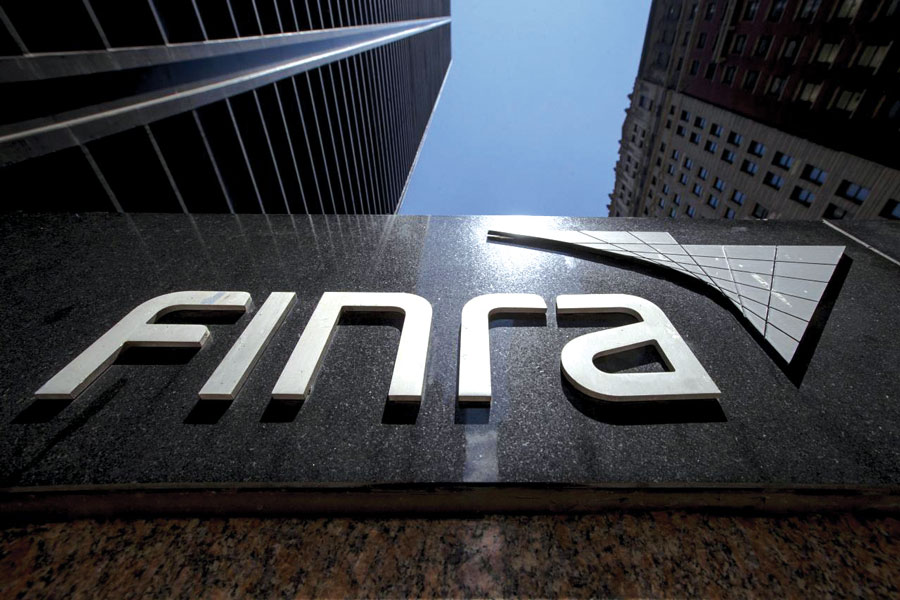

The Securities and Exchange Commission is about to consider a long-awaited rule proposal from the Financial Industry Regulatory Authority Inc. aimed at discouraging the hiring of registered representatives with lengthy disciplinary histories.
The discouragement would come in the form of higher capital requirements for broker-dealers that hire an above-average number of reps with a record of misconduct. Finra proposed such a rule last May, put it out for public comment over the summer, and voted in early December to forward its proposal to the SEC for approval.
Unfortunately, the final proposal — which reflects revisions Finra made based on the public comments received — has not been released to the public. Let’s hope it goes far enough to protect the investing public and is sufficiently rigorous to put a measurable dent in the number of fines, censures and bars that Finra imposes on the registered representatives it oversees.
The securities industry often talks about the relatively low number of “bad apples” among the roughly 600,000 registered representatives in the U.S. On a sheer percentage basis, that may be true. But readers of InvestmentNews are all too aware that disciplinary actions and letters of acceptance, waiver and consent involving reps who churned accounts, forged client signatures or sold inappropriate and unsuitable investments are not especially rare. In fact, if the problem of rogue brokers was truly insignificant, there would have been no reason for Finra to propose its rule.
Aside from the industry’s ethical obligation (as well as its own enlightened self-interest) to root out bad actors, there is also the public policy case. With the responsibility for providing sufficient income in retirement now falling almost entirely on individuals themselves, the financial professionals who provide guidance to retail investors saving and investing for their future have a critical role in the retirement security of millions of Americans. Because of their responsibility, they should be held to the highest standards of conduct.
To be sure, a rule aimed at hiking the capital requirements for firms that make a practice of employing brokers with red-dot-studded BrokerCheck records would hit where it hurts — in the corporate pocket. Hopefully, higher capital requirements and the inability to make withdrawals from those accounts without Finra’s approval would make smaller firms think twice about hiring a questionable producer. If nanny-type rules cause disreputable firms to clean up their act or go out of business, so much the better for the investing public.
But the rogue broker problem won’t go away if it is regarded solely as an issue among smaller firms. Many representatives with eyebrow-raising disciplinary histories are employed by or affiliated with midsize and large broker-dealers. Because of the size of the firms, however, these brokers constitute a small percentage of the total. As a result, the new rule — along with its capital requirements — likely would have little effect on any but the smallest firms.
Since Finra is a self-regulatory body, it is understandable and appropriate that the interests of the broker-dealer community are incorporated in its decision-making. The SEC, however, is charged with supervising capital market participants and the securities and investment instruments market, and protecting the investing public
Because of its mandate, the SEC should review Finra’s proposal carefully, with its public protection role in the forefront of its thoughts. If the agency believes there are ways to more fully protect investors from rogue brokers than those offered in the Finra proposal, it should act accordingly.

Integrated Partners is adding a mother-son tandem to its network in Missouri as Kestra onboards a father-son advisor duo from UBS.

Futures indicate stocks will build on Tuesday's rally.

Cost of living still tops concerns about negative impacts on personal finances

Financial advisors remain vital allies even as DIY investing grows

A trade deal would mean significant cut in tariffs but 'it wont be zero'.
RIAs face rising regulatory pressure in 2025. Forward-looking firms are responding with embedded technology, not more paperwork.
As inheritances are set to reshape client portfolios and next-gen heirs demand digital-first experiences, firms are retooling their wealth tech stacks and succession models in real time.
